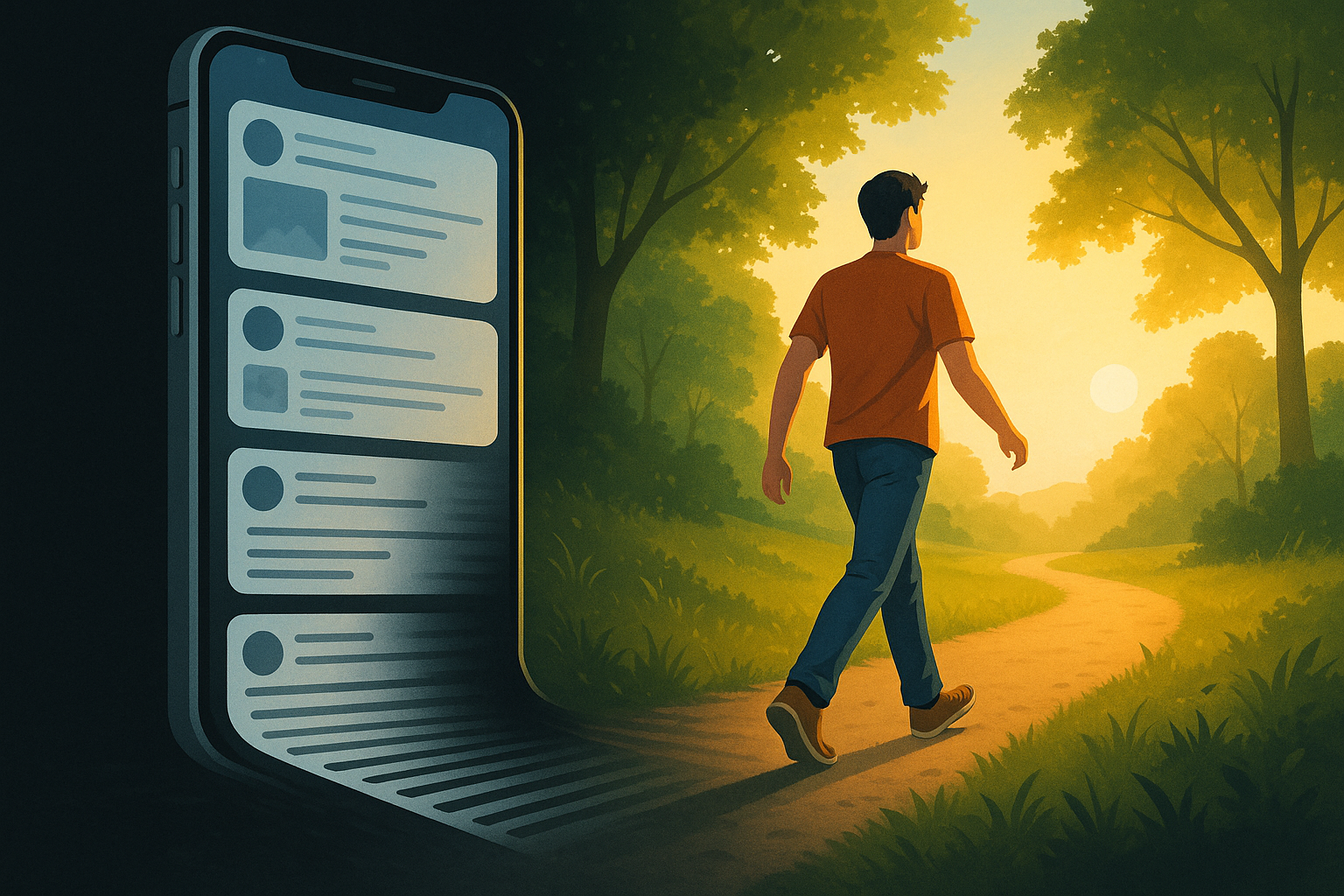The Social Scroll Trap: How Infinite Feeds Hijack Your Mind

TL;DR
Infinite scroll and autoplay weren't accidents — they were engineered to keep you hooked. They hijack your brain's reward system, making it harder to stop than you think. The good news: with the right tools and rituals, you can reclaim your attention and turn scrolling into intentional use.
The Invention That Changed Everything
Back in 2006, UX designer Aza Raskin invented infinite scroll. The idea was simple: remove the “stop” button. No pagination. No natural end. Just a bottomless feed.
Raskin later admitted he regretted the invention, calling it a tool that “traps people into spending more time than they want.” Combined with autoplay video and algorithmic feeds, it has become one of the most powerful attention-grabbing designs in history.
“If you don't design for people's values, someone else will design for their impulses.” – Aza Raskin
Why Your Brain Can't Stop
Infinite scroll isn't just convenient — it's addictive by design. It taps into the variable reward system: the same principle that makes slot machines so compelling.
Sometimes you see a funny video, inspiring post, or message from a friend.
Other times you see nothing valuable at all.
That unpredictability keeps your dopamine system firing. You never know when the next swipe will deliver something rewarding — so you keep swiping.
Research shows that this “variable ratio reinforcement” schedule is the most powerful way to shape behavior.1
The Hidden Costs
Scrolling feels harmless in the moment. But over time, it adds up:
How to Break Free from the Scroll
You don't need to delete every app. But you can put friction back into the system — and give yourself natural stopping points.
Set a Scroll Limit
Use iOS App Limits or Android Digital Wellbeing to cap feed-based apps at 30–45 minutes per day.
When the limit hits, ask: “Did this time reflect my values?”
Create Endpoints
Follow accounts that post in batches (e.g., newsletters, blogs, podcasts) rather than endless feeds.
Use tools to insert reminders into your feeds.
Disable Autoplay
Turn off YouTube and TikTok autoplay. This forces a conscious choice before the next video starts.
Reclaim Rituals
Replace “scroll reflexes” with intentional pauses: take three breaths, drink water, stretch.
Try our 7-Day App Cleanse for a structured reset.
The Peace on the Other Side
Once you step out of the scroll trap, something surprising happens: you realize that most of what you missed wasn't important at all.
What you gain back — time, focus, calm — is worth far more than the next swipe.
📱 “Infinite scroll is infinite distraction. You don't need endless content. You need intentional moments.”
– QYD
References
1. Skinner, B. F. (1953). Science and Human Behavior. Free Press.
2. Mark, G. (2023). Attention Span: A Groundbreaking Way to Restore Balance, Happiness and Productivity. Hanover Square Press.
3. DataReportal. (2025). Digital 2025: Global Digital Overview. https://datareportal.com/reports/?tag=Digital+2025
